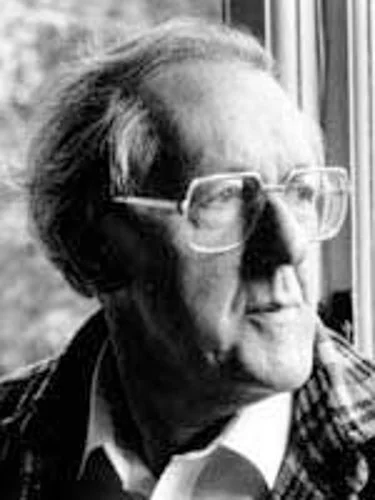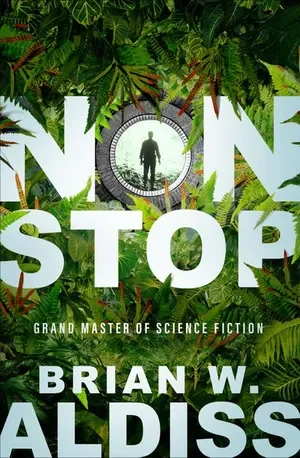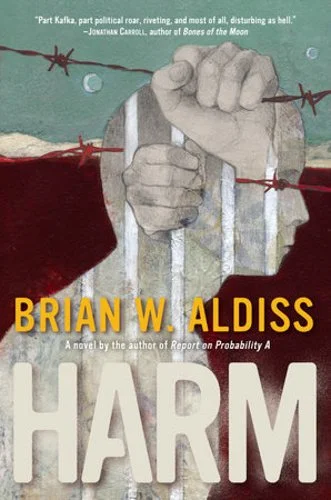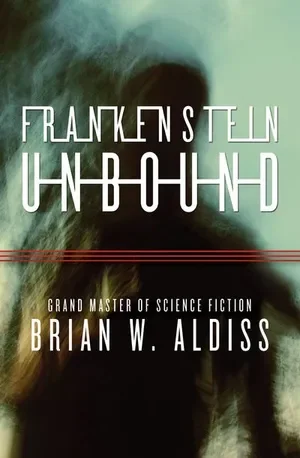Estate of Brian Aldiss
Brian Aldiss OBE (1925-2017), was a fiction and science fiction writer, poet, playwright, critic, memoirist and artist. He was born in Norfolk in 1925. After leaving the army, Brian worked as a bookseller, providing the setting for his first book, The Brightfount Diaries (1955).
His first published science fiction work was the story "Criminal Record", which appeared in Science Fantasy in 1954. Faber encouraged him to pursue his enthusiasm for SF and published Space, Time and Nathaniel (1957). He went on to write nearly 100 books and over 300 short stories, including the acclaimed novels Hothouse, Non-stop and the Helliconia trilogy, all regarded as modern classics.
In 2010, The Hand-Reared Boy (1970) was longlisted for the Lost Booker Prize.
Several of Brian's books, including Frankenstein Unbound, have been adapted for the cinema and his story "Supertoys Last All Summer Long" was adapted and released as the film AI: Artificial Intelligence in 2001, directed by Steven Spielberg.
Besides his own writing, Brian edited numerous anthologies of science fiction and fantasy stories and the magazine SF Horizons.
Brian was a vice-president of the international H. G. Wells Society and in 2000 was given the Damon Knight Memorial Grand Master Award by the Science Fiction Writers of America (SFWA). He was awarded the OBE for services to literature in 2005. He spent much of his life in Oxford, where his bookselling career began in 1947 and where he died in 2017.
For more information about Brian Aldiss:
Select Books
Non-Stop
Non-Stop is Grand Master of Science Fiction and Hugo and Nebula Award–winning author Brian W. Aldiss’s debut novel. Written in response to Robert Heinlein’s Orphans of the Sky and published in the late 1950s, it is set in a primitive world, home to tribes of inhabitants who endure their harsh and stunted lives in a maze of corridors. Though legends exist that they’re actually on a ship traveling through the universe, no one really believes it. But that conviction doesn’t stop a group of people from embarking on a mission to find the rumored “Forwards” section and its control room. Through a tangled, hydroponic jungle, they’ll encounter telepathic animals, giants, outcasts, and mutants in an epic race to uncover the truth—and survive . . .
(Open Road Media, October 2020)
Harm
From one of science fiction’s greatest living writers comes an unforgettable near-future novel in the tradition of Bradbury’s Fahrenheit 451, Orwell’s 1984, and Dick’s A Scanner Darkly. Both a searing indictment of a fear-drenched political climate and a visionary allegory that shines a piercing light on timeless human verities, Harm is a powerfully compact masterwork.
Paul Ali, a young science fiction writer of Muslim heritage, is arrested for no reason and held in isolation as prisoner B. Questioned, beaten and humiliated, he writes -- in the privacy of his mind -- a science fiction novel set on a planet in every sense a thousand light years away. Gradually, the two worlds start to converge...
(Del Rey, May 2007)
Frankenstein Unbound
Some years into the twenty-first century, a newly devised weapon of mass destruction will do far worse than kill; it will disrupt time and space. Suddenly, land, buildings, animals, and people are falling through “timeslips” and being transported briefly back to earlier eras. One of these inadvertent time travelers, Joe Bodenland, is shocked when he finds himself parked outside a villa on the shore of Lake Geneva—and soon after, unbelievably, in the presence of nineteenth-century literary luminaries Lord Byron and Percy Shelley, along with Shelley’s very enticing fiancée, budding author Mary.
An absolutely stunning reinvention of a cherished literary classic, Frankenstein Unbound proves once more that there are no limits to the unparalleled creative genius of science fiction Grand Master W. Brian Aldiss.
(Open Road Media, May 2015)



